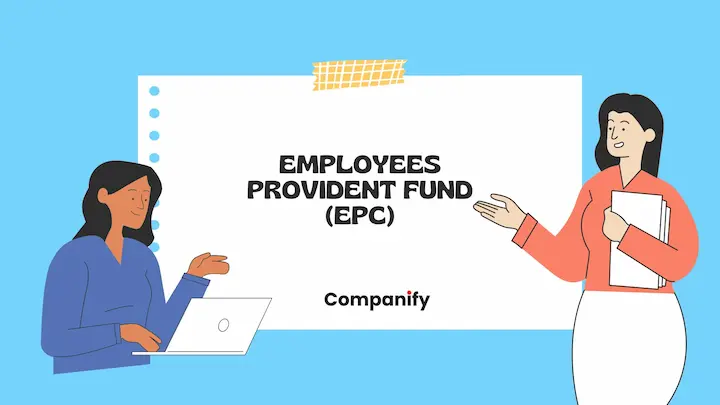

Employees Provident Fund (EPF)
Employees Provident Fund (EPF)
Employee Provident Fund[EPF] is a scheme in which retirement benefits are provided. Under the scheme, an employee has to pay a certain contribution towards the scheme, and an equal contribution is paid by the employer.
APPLICABILITY:-
The act applies to:
(a) Every factory engaged in any industry, in which 20 or more persons are employed.
(b) Other establishments employing 20 or more persons were notified by the central government.
(c) Any establishment employing even less than 20 persons can be covered voluntarily under this act or scheme.
CONTRIBUTION:-
The contribution paid by the employer is 12% of basic wages including dearness allowance(DA) and retained allowance(RA) if any. An equal contribution is payable by the employees also. In case employees want to contribute more than 12%, the option of a Voluntary Provident Fund(VPF) is provided. A rate of 10% is applicable to the following industries:
For an establishment having less than 20 employees, or
Sick industrial company or establishment which has at the end of the financial year, accumulated losses or
Any establishment in the following industries:-
(a) Jute
(b) Beedi
(c) Brick
(d) Coir Factories.
For most of the Employees Provident Fund of the private sector, it’s the basic salary on which the contribution is calculated. For example: if the monthly basic salary is Rs 30,000, the employee contribution towards his or her EPF would be Rs 3600 p.m (12% of basic salary).
THRESHOLD and PROCEDURE:-
Contribution by the employer should be according to the present threshold of Rs 15,000 p.m, beyond which the employer is not liable to contribute.
In respect of employees employed by a contractor, the contractor shall recover the contribution along with administrative charges payable to the Principal Employer.
An employer needs to deposit its statutory contribution by the 15th of every month.
Out of the employer‘s contribution, 8.33% will be diverted to the Employees Provident Scheme.
NON-APPLICABILITY:-
The EPF ACT shall not apply to certain establishments:
To any establishment registered under Co-operative Societies, or state co-operative societies employing less than 50 persons.
To any other establishment belonging to or under the control of the central or state government and whose employees are entitled to similar benefits.
WITHDRAWALS FROM THE EPF ACCOUNT:-
According to the EPF Act, for claiming a final EPF settlement, one has to retire from service after attaining 55 years of age. To partially withdraw the amount for those nearing retirement, anyone over 54 can withdraw up to 90% of the accumulated balance with interest. In case any employee quits his or her job before retirement, the employee can withdraw 75%of their EPF corpus after remaining unemployed for 1 month and balance 25% after remaining unemployed for more than 60 days. To withdraw money, the employees can use Universal Account Number(UAN) allotted by EPFO.UAN has been made mandatory for all employees and will help in managing the EPF account and even PF transfer becomes easier.
Employees Provident Fund PENALTY:-
In case the employer has made a default in transferring the accumulated amount, he is required to pay damages as follows:
If the period of default is less than 2 months – 5% of arrears p.a.
If the period of default is 2-4 months- 10% of arrears p.a.
If the period of default is 4-6 months- 15% of arrears p.a.
If the period of default is more than 6 months-25% of arrears p.a.
Employees Provident Fund BENEFITS:-
Employees covered enjoy the benefit of social security in the form of a non-attachable and non-withdrawable financial nest of eggs to which employer and employees contribute equally.
This sum is payable normally on retirement or death.
Employees' Pension Scheme and Employee's Deposit Linked Insurance Scheme are other benefits under the EPF act.
The EPF withdrawal is not taxable if one has completed at least 5 years of continuous service.
The government introduced Tax Deducted at Source (TDS) on PF withdrawals in order to discourage premature withdrawals and promote long-term savings.
The EPFO allows one to access one’s EPF even during the course of employment. Such withdrawals are treated as advances.
Such advances are allowed only under specific situations- buying a house, repaying a home loan, medical needs, education, the marriage of children, etc.

